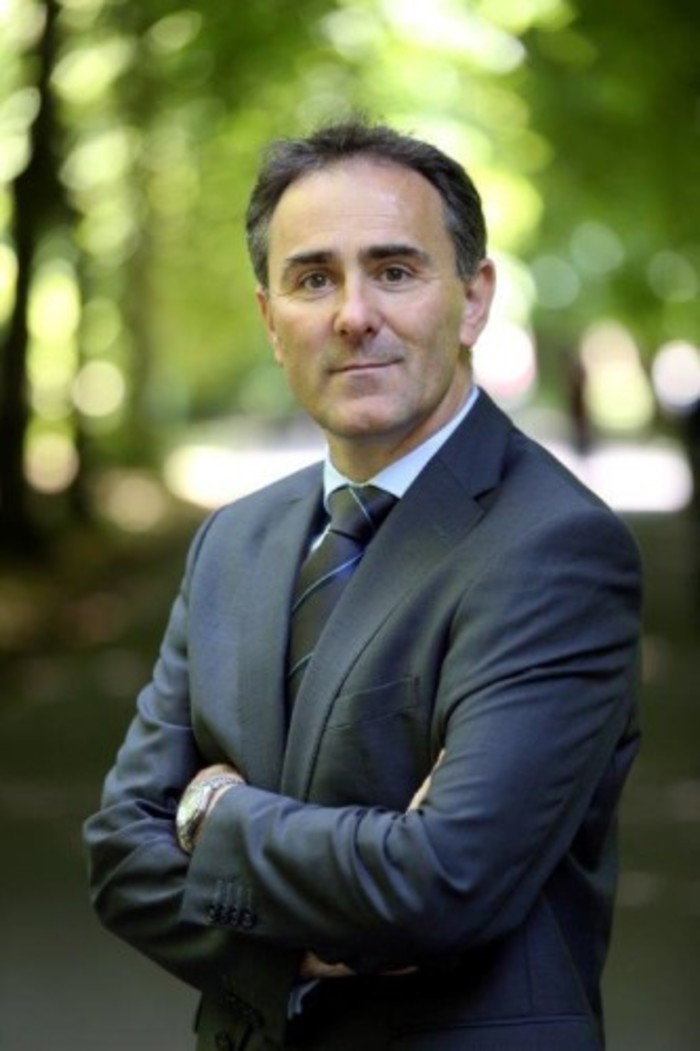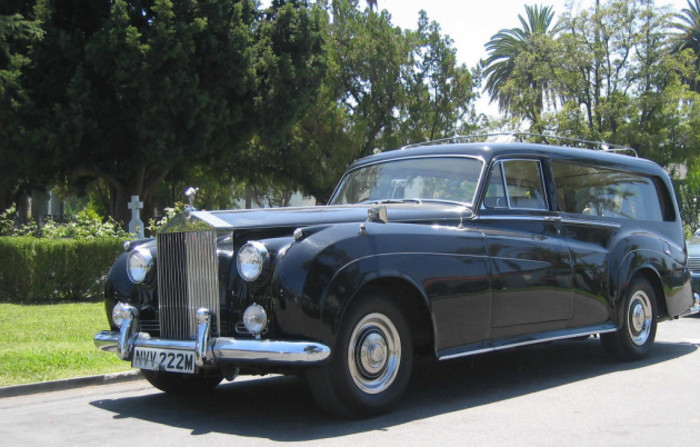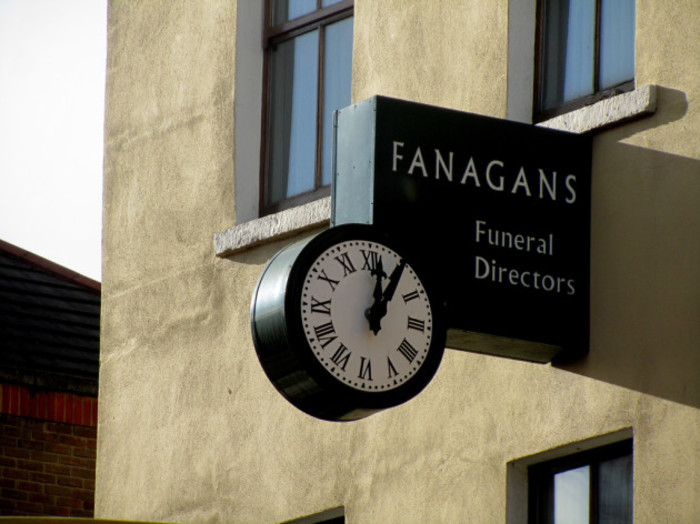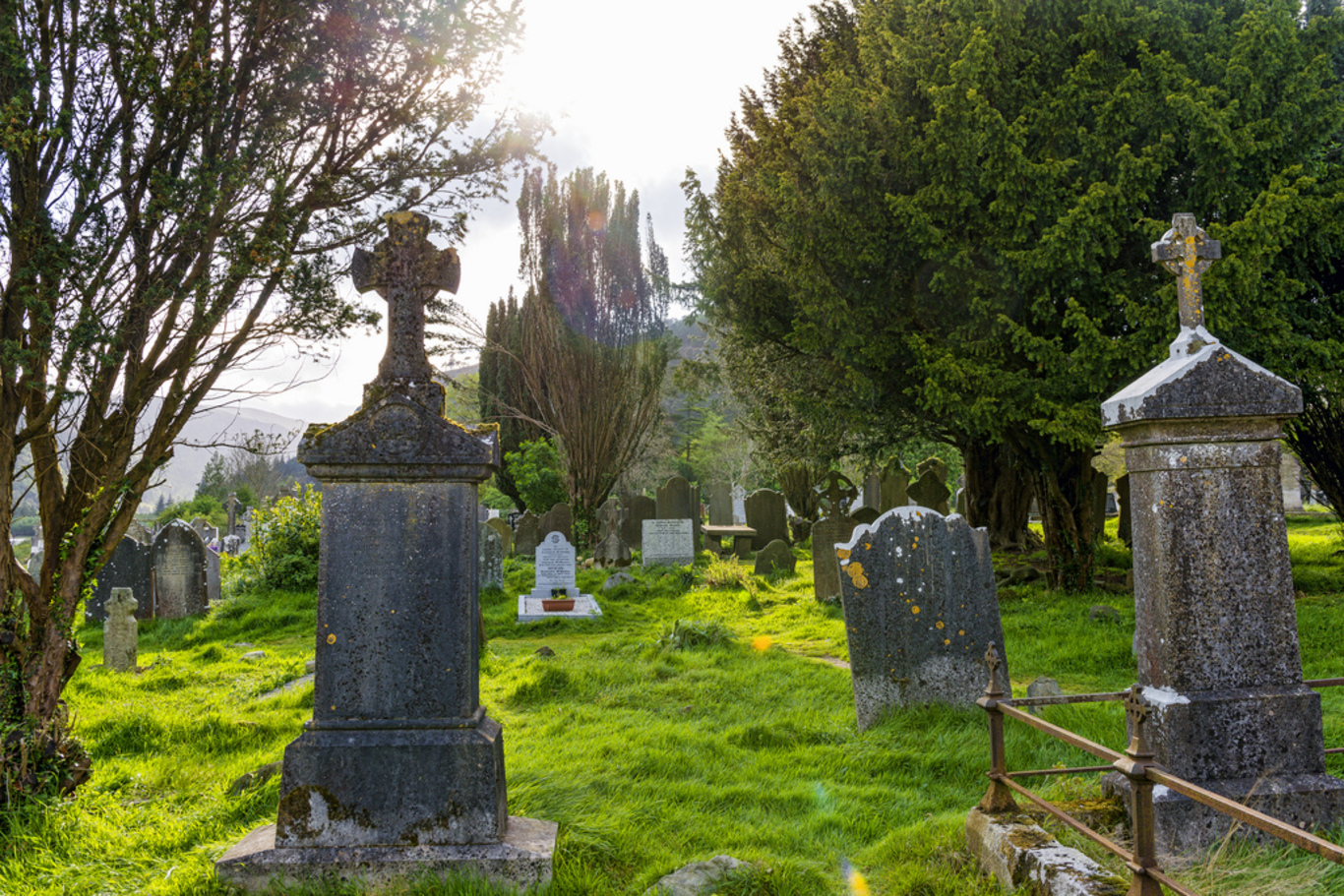'In Ireland we treat death and funerals with respect. I think we do it as a community'
As part of our weekly How My Business Works series, we profile Fanagans funeral directors.
EVERYONE HAS BAD days at work, but most of the time the reason for it is relatively trivial. A project is late, your boss mixed up your name with the intern, or you are the intern. In any case, usually it isn’t life and death.
Except for Jody Fanagan, head of one of the country’s largest funeral directors, it is.
“Roughly 90% of the time you are dealing with families who are happy to celebrate someone who has had a long life,” he tells Fora. “When there is a funeral for someone who is 80 or 90, it is sad but people want to celebrate their life.
“But there are obviously the occasions where a young person has died and it is much more emotionally charged.”
The 51-year-old says that making sure to disconnect from work is crucial. Fanagan has plenty of hobbies – he’s a fine amateur golfer, once beating a young Tiger Woods in the amateur Walker Cup – and has a wife and three teenage sons, and says that downtime helps with work.
“Not taking your work home is so important. You have to try and have a weekend, do activities and get away,” he says. “You have to try not to get emotionally involved with each family (because) if you get in too far it is hard to move onto the next one.”
Thrown in at the deep end, from his twenties onwards he was making calls to the homes of people who had recently lost and loved one and was entrusted with helping them plan that person’s final journey.
“It was nerve wracking but my cousin said to me that at the end of the day you will know more about the funeral business than the family and you should be able to answer most of their questions,” he says.
“It is just about learning how to put the family’s mind at ease (and) about getting that mixture of being professional and empathetic, and experience helps in that regard.”
As the company is almost 200 years old, experience is easier to come by in Fanagans than most places. Jody Fanagan now has almost three decades in funeral services under his belt and has led the group since 2012. Now managing director, he is looking to make sure that the company is in a better state to pass on than when he received it.
What do you do and how long have you done it for?
Fanagans is one of the oldest funeral groups in the country, organising funerals and providing any services needed by bereaved families. The firm traces its roots back to 1819 when carpenter and coach owner John Fanagan set up in Dublin city centre.
Some 40 years later, William Fanagan set up an undertaking business on Aungier Street, where the business still has a presence.
In the early twentieth century the family owned a nearby farm and would rotate its horses between agricultural work and helping to pull carriages for funerals.
The business was overhauled with the spread of automobiles, which reduced the dependency on horses, and then again in the seventies with the rise in popularity of the funeral home.
 Fanagans managing director Jody Fanagan
Fanagans managing director Jody Fanagan
“Funeral homes became a trend where people didn’t want bodies decomposing in their houses, so we opened a home in Kimmage,” Jody Fanagan says.
The company began to slowly expand by acquiring several of its rivals, many of which did not have younger family members who wanted to take over the business.
The firm was eyed up by several multinationals as it grew bigger – Jody Fanagan says that companies from the US and the UK both made enquires about buying the firm – but ultimately Fanagans stayed in the family.
As Jody Fanagan began to work his way up through the firm the company did not feel the squeeze that many other businesses did during the recession.
“In the years before the Celtic Tiger the death rate was going down in Dublin, it was about 7,500 a year and then went down to about 6,900,” he says.
“As the recession started the death rate started to turn around, partly because of population increases and because medical advances can only delay what will happen for so long.”
However, he adds: “People always make comments and say it must be nice to always be in business, but it is not true. We have competition and we have to do what we do well.”
What are your costs and how do you make money?
In years gone by, funeral directors would generally just provide basic services to those who have lost a loved one; providing a coffin and transport for the deceased person might have been the height of it. Nowadays, funeral directors have a much broader remit.
“When someone dies we meet the family and go through all of the details (and) what they want to plan,” says Jody Fanagan.
“We can remove the person who died, take care of the body, select and prepare a coffin, place a death notice in the newspaper, arrange a flower, arrange funeral services, printers if they want a mass book…” he goes on, but the point is clear. Anything you want, within reason, Fanagans will try and do.
He says that for most families funerals tend to cost “between €5,000 and €6,000”, although he adds that people can add on extra services, such as hiring an extra limousine for the funeral, for more money.
This is all leaving aside the cost of a grave, the purchase of which is something that Fanagans will also arrange. Sometimes families have an existing lot, but those that don’t could easily spend €2,000 securing a spot, while plots in certain Dublin cemeteries have sold for as much as €16,000.
The company’s funeral fleet, made up of about 18 hearses and limos, is a big expense. Jody replaces two of the vehicles a year at a cost of about €140,000, however he says it is necessary as the cars have to be reliable.
 A stock shot of a hearse
A stock shot of a hearse
The company’s 60 staff are its other major cost and Jody Fanagan says that while recruiting was sometimes tough during the Celtic Tiger – “it’s not what everyone wants” – it became easier after the recession years.
The company is making money, reporting a profit of over €200,000 in 2014, although this was down from about €400,000 the year before.
What is your market?
Fanagans has 10 funeral homes spread throughout Dublin city and county, including in areas such as Dundrum, Kimmage and Finglas. The company is well set up in Dublin and has no intention of expanding outside of it.
“In Ireland if you go to any county, town or village, if someone dies people want to deal with the person they know, they don’t want to deal with someone from Dublin,” he says.
However, he says that the firm is still interested in upping its presence in the capital, recently acquiring a pub in Rathfarnham which will likely open as a new funeral home in the next year and a half.
Fanagan says cremation has become much more popular in recent years – “it used to be about 5% of people, now it’s near 30%” – while demand for humanist and non-religious ceremonies has also grown.
He added that the company does not engage in flashy or novelty funerals and says that the appetite for them among people is low.
“In Ireland we treat death and funerals with respect and I don’t think there is a thing of one upmanship among neighbours. I think we do it as a community well,” he says.
What is the competition?
By Fanagan’s own estimate there are about two dozen different funeral directors across Dublin that operate more than 50 funeral homes between them.
Many of them are small operators. However, some, like Massey Bros with 10 locations across the capital, rival Fanagans for scale.
He says that the company prefers to “focus on ourselves” rather than worry too much about its rivals, although he adds that the firm has looked to focus more on advertising in recent years.
“We try to do it subtly, to keep our name out there in the backs of people’s minds, because ads for funeral services isn’t something that people want to see everyday,” he says.

He adds that the firm has also looked has looked to “professionalise” in the past few years by recruiting people with business expertise from outside the family.
“Over the last five years we have tried to improve at board level where we felt we were lacking,” he says. “We had directors who were making decisions about funerals but were not looking at the business world. Now we are.”
What is your vision?
Jody Fanagan says the aim for the group now is to continue expanding steadily and be the biggest funeral business in Dublin.
“I want to provide excellent funeral care, to try and improve as we go along and look at any opportunities for acquisitions,” he says. “I will try and pass the business onto my family in better condition than when I inherited it.”
It’s likely that he will leave his post within the next decade. There are three strands of the Fanagan family, and the position of managing director is regularly switched between them.
Jody Fanagan says there has been a loose rule that once they hit 60, the current MD passes the torch to the next willing family member.
However, he adds that it is up to his sons to decide on whether they want to move into the family business.
“The three boys are still in school and I just want them to be the best at what they want to do. If they don’t want to come in (to the business) that’s fine, if they want to come in they can as long as they can make that decision,” he says.
“When I get to 60 I will be happy to pass the baton. Any way of life has a shelf life once you reach the top and this is a 365 days a year business. 38 years will be plenty but you can’t look too far ahead and I’m not going anywhere yet.”
This article is part of our weekly series examining the nuts and bolts of businesses. If you would like to see your company featured please email news@fora.ie.






